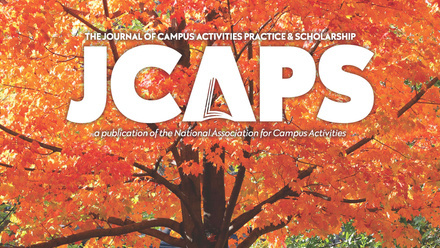Friends, Not Foes: Graduate Preparation & Certification
Reposted with permission. View original post at Higher Education Consortium for Student Affairs Certification.
“Why do we need certification when the field already has master’s degrees? Will certification compete with graduate degrees and negatively impact program enrollment? Won’t certification cheapen the value of a master’s degree?” These were common questions posed about Student Affairs Educator Certification. Predating certification’s launch and continuing through today, the profession has been experiencing a paradigm shift that requires us to rethink how we approach our commitment to both professional preparation and lifelong learning in our field.
Since its inception, certification was built to serve as an additional career resource for SApros and complement–not compete with–longstanding and established graduate preparation programs. Certification demonstrates a commitment to staying current and relevant, which can make for leaders who are better prepared to be adaptable and engage in change. It provides a confidence boost and the personal satisfaction of achievement that SApros want and need to feel throughout their career, even after there are no more degrees to be earned. Our practitioners don't get that often, if at all, and we shouldn't neglect this fact. Certification is providing a new model for this. Seven student affairs professional associations collaborated to actualize this model and, in doing so, created a resource to augment the rich spectrum of furthering lifelong learning that occurs throughout the field.
Over the past few years, I’ve been fortunate to engage in numerous conversations about certification with SApros across multiple levels, functional areas, and institution types, and graduate preparation program faculty. It has become increasingly more common to witness members of our field having something of a eureka “Ok! Now I get it!” response during these conversations. Does this mean that everyone is an advocate of certification? Of course not. But I believe these conversations have helped in creating greater understanding about certification, its purpose, and value: to encourage lifelong learning, to continue to validate knowledge gained throughout one’s ongoing professional journey, and to support career advancement.
Perhaps no topic within certification discussions generates as much concern and passion as its relationship with graduate preparation programs. This blog post is intended to directly address this very topic.
Why do we need certification when the field already has master’s degrees?
While position requirements and preferences vary across institutions, a master’s degree has generally become the common standard for entry into a professional student affairs position. Master’s degree programs provide an established foundation, often coupled with practical application through assistantships, apprenticeships, internships, and the like, to develop knowledge and competencies necessary for successful student affairs work. Certification is not a replacement for these fundamentals. It is a complement to provide engagement in lifelong learning for mid-level professionals.
Just as two decades ago Learning Reconsidered challenged our field to re-examine conventional thinking about student learning, certification calls us to reflect on the ongoing learning and career pathways of student affairs professionals. Part of our goal as educators in supporting students is encouraging lifelong learning that continues beyond graduation and degree achievement. This also holds true for SApros in that learning continues after the achievement of earning a graduate degree.
Our profession values and benefits from lifelong learners. This includes SApros who stay engaged with trends and topics regardless of whether their highest degree was earned five or 50 years ago. Certification is a tool to supplement learning beyond graduate education to formally validate practitioners continuing to learn, keeping current as the field changes and evolves, and not getting stale in their knowledge and practice.
Unlike licenses, certification is voluntary. SApros may elect to earn certification to further demonstrate their knowledge and for practical uses such as advocating for professional development funding and standing out in job searches. As certification becomes more commonplace within the field and understanding of it deepens within HR offices, it can be a driver for advancement and pay for professionals.
Will certification compete with graduate degrees and negatively impact program enrollment?
In 2023, the first year of the certification program, 95% of candidates held a graduate-level degree (79% held a master’s degree, 16% held a terminal degree). These data suggest that the program is being used as designed in providing existing professionals–the majority of whom hold a master’s degree–with formal avenues to support their continued learning and professional development.
Further, certification is a resource specifically for mid-level educators and dissuades those who might prefer getting certified over earning a graduate degree. Certification eligibility requirements consist of five years of full-time student affairs work experience if one holds a graduate-level degree or seven years of full-time student affairs work experience if one’s highest degree earned is a bachelor’s or an associate’s. This means that someone not holding a graduate degree would need to work a considerable number of years before being eligible for certification.
Won’t certification cheapen the value of a master’s degree?
Evaluation data from certification candidates indicate the credential is valued as an optional “next step” for SApros, the majority of whom hold master’s degrees.
The top five responses to questions asking candidates why they applied for certification are:
- To demonstrate my knowledge of student affairs/services overall (89%)
- To inform my ongoing learning (74%)
- To demonstrate my knowledge within a student affairs/services functional area (74%)
- To support my advancement potential into more senior level positions (58%)
- I have a master’s degree but don’t want a doctorate, so this is a way to earn another credential (47%)
Certified Student Affairs Educators often share that the process of becoming certified was a validating experience that showed to themselves and others that they “still know their stuff.” This is particularly true for SApros who hold graduate degrees in disciplines outside of student affairs. Professionals like campus recreation professionals with master’s degrees in sports management or student conduct administrators with JDs–all of whom hold a seat at the table in serving students and bring important knowledge and credibility to this shared work. Certification has been described in such circles as validating for these SApros who work alongside colleagues with graduate degrees in higher education and student affairs.
Concluding Thoughts
Graduate preparation has a deep-rooted history and ongoing significance in educating and equipping SApros with necessary contexts, histories, critical thinking skills, knowledge, and foundational understandings to support success in student affairs work. Present challenges to the student affairs talent pipeline as exhibited in graduate program enrollment declines and SApros exiting the field are clear and present dangers to our work, institutions, and students. Reversing these trends will require examining our assumptions about student affairs career pathways, innovation in thinking about how we honor and validate learning within and after graduate education, and expanding collaborations among graduate preparation programs and professional associations to support our talent and the profession.
In closing, I pose the question, might certification actually further support the imperative work of graduate faculty in preparing SApros? Could certification focus on knowledge and skills gained through ongoing work experiences and staying current with trends impacting our field by empowering master’s programs to focus on the foundational, academic underpinnings essential to SA work? Could it serve as a new channel for faculty and the Consortium to work together in creating scaffolding in learning that occurs for graduates-turned-professionals working in the field as well as supervising graduates entering the profession? The promise of certification is that of a further layer that can build on graduate education, validate knowledge, and incentivize continued learning.
Further reading includes the new NASPA publication, Student Affairs Professional Preparation: A Scholar-Practitioner Guide to Contemporary Topics.






